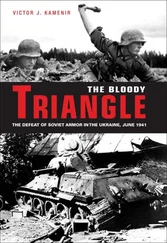“There’s a special evil in the abuse and exploitation of the most innocent and vulnerable,” Bush continued. “The victims of sex trade see little of life before they see the very worst of
life—an underground of brutality and lonely fear. Those who create these victims and profit from their suffering must be severely punished. Those who patronize this industry debase themselves and deepen the misery of others… governments that tolerate this trade are tolerating a form of slavery.”
He then touched on the U.S. government’s efforts to take a bite out of the trade internationally and concluded by issuing a call to action to all members of the United Nations: “We must show new energy in fighting back an old evil. Nearly two centuries after the abolition of the transatlantic slave trade, and more than a century after slavery was officially ended in its last strongholds, the trade in human beings for any purpose must not be allowed to thrive in our time.”
His comments on trafficking were terse and, sadly, completely eclipsed by his spin on Iraq. The news media virtually ignored it. Still, he was the first world leader to address the UN General Assembly on the trafficking of women, and his words were indeed powerful.
But for the UN delegates who sat through the speech in silence, those words must have rung hollow. After all, the U.S. record on supporting crucial UN treaties and conventions on that very issue is anything but impressive. The U.S., for example, is one of only two countries in the world that has not ratified the UN Convention on the Rights of the Child; the other is Somalia. The U.S. also has not ratified the Convention on the Elimination of All Forms of Discrimination against Women, nor has it ratified the UN Protocol to Prevent, Suppress and Punish Trafficking in Persons, Especially Women and Children. Most surprisingly, however, the U.S. actually went to the trouble of “unsigning” the Rome Statute, which created the International Criminal Court in The Hague. The court was created as a forum for prosecuting war crimes, genocide and other crimes against humanity, including the trafficking of women. Nearly every major European ally signed on without reservation. President Bill Clinton signed on behalf of the U.S. in 1999.
Then on May 6, 2002, citing concerns about the potential prosecution of U.S. service members and officials, Bush withdrew the signature. In a three-sentence letter to UN Secretary-General Kofi Annan, he formally ended U.S. participation in the world’s first permanent international tribunal. In doing so, Bush went down in history as the only world leader ever to revoke a signature on an international treaty. Understandably, the move provoked outrage and disappointment from human rights advocates around the globe. Criticism also poured in from human rights leaders on Bush’s home turf. William Schulz, executive director of the U.S. section of Amnesty International, condemned the move as “a new nadir of isolationism and exceptionalism. Out of step with our allies and America’s legacy, this is an historic low for the United States’s role in protecting human rights.”
Other critics zeroed in on what this could mean for the U.S. in the broader sense. Mark Epstein, director of the World Federalist Association, noted that “this unprecedented action suggests to the world that the signature of a U.S. president lacks enduring meaning. At the very time the U.S. seeks signatures and ratifications of anti-terrorist treaties, an ‘unsigning’ by the Bush administration will undermine the power of the international treaty system.” Many expressed concern that this unprecedented “unsigning” would encourage other governments to follow the U.S. lead. “Other countries might well use this precedent to justify backing out of international commitments that are important to the U.S.,” the Lawyers Committee on Human Rights pointed out. More broadly, the renunciation was seen as seriously undercutting America’s standing as a nation committed to international justice.
On the crucial issue of trafficking, Bush’s action can only hobble his own ability, and that of his country, to pressure other nations to make serious efforts to eliminate this particularly repugnant trade.
THE ISSUE OF TRAFFICKING desperately cries out for firm, committed leadership; it has to be made a global concern. This point is not lost on the U.S. government, which, despite the inconsistencies of its approach, has anointed itself world sheriff on the issue. The American position was delivered loud and clear at the swearing-in ceremony for John Miller on March 4, 2003, when he was appointed director of the Office to Monitor and Combat Trafficking in Persons in Washington, D.C. “The struggle we wage to abolish modern day slavery will decide the fate of millions of human beings,” Miller began. “But this struggle is also tied to the United States’s role in the world. We live in a time when many people abroad do not know or have forgotten the idealism that led Americans to sacrifice over and over so that others might enjoy the God-given, inalienable right to liberty enunciated in our Declaration of Independence.”
Miller waxed eloquently about trafficking, describing it as “an issue that cries out for national and international leadership.” And the one country that must provide that leadership, he continued, “is the United States of America…
“[J]ust as today the people of Eastern Europe thank us for freeing them from Soviet tyranny,” he predicted, “in the future, if we are successful, millions of men in forced peonage and millions of women and children forced into prostitution and sex slavery will thank the United States for their freedom.”
With these righteous words, America officially assumed the role of global crusader intent on saving trafficked women and girls everywhere. But if we look beyond the moral indignation of its official pronouncements, the U.S. has a record that tells a different story.
Yes, the U.S. government continues to expound vociferously on the global trafficking situation. On December 9, 2003, Miller even raised the bar, describing trafficking as “the emerging human rights issue of the twenty-first century.” And yes, the State Department continues to publish its annual Trafficking in Persons (TIP) report. It continues to pound its fist and utter menacing threats that it will take decisive action against any nation that doesn’t move to stop the traffic. But sadly, the threats have turned out to be hollow and contingent on political, foreign and diplomatic interests. The proof is in the action, or better yet, inaction. Let’s take a look at some of the facts.
On June 11, 2003, the State Department released its third annual TIP report. Two thousand and three was to be the defining year. Countries still languishing on the third tier for their inability or unwillingness to deal with the trafficking problem would face the consequences of U.S. sanctions. For a handful of countries, the prospects looked decidedly grim. Russia, Turkey and Greece had landed on Tier Three for the past two years in a row. A third Tier Three rating would not only have been embarrassing but would also have incurred possible withdrawal of non-humanitarian assistance by the U.S.
All eyes were on Russia, which has one of the worst trafficking problems in the world. Each year tens of thousands of Russian women are trafficked to more than fifty countries for sexual exploitation, and far more girls and women from the former Soviet republics are forced to work the streets and highways in and around Moscow and St. Petersburg. This travesty continues for one reason alone: Russia is one of the most corrupt societies on the planet, not to mention home to one of the most formidable forces in the global trafficking of women—Russian organized crime.
Читать дальше












